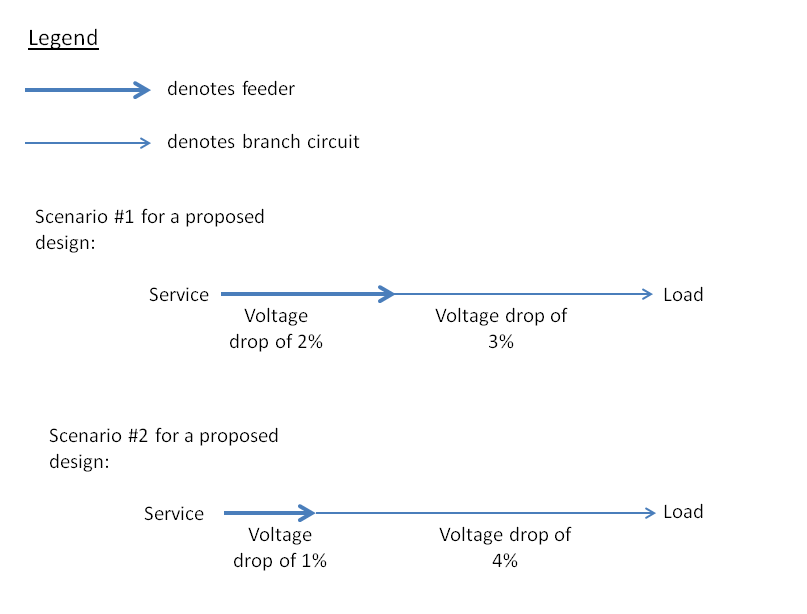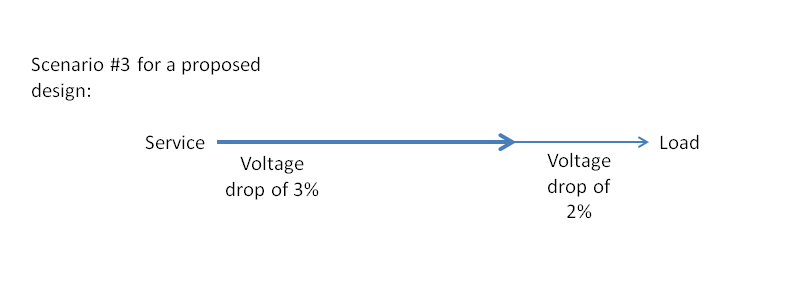8.4 Voltage Drop Requirements
The voltage drop requirement, which
has been clarified and revised in the 2016 update of the Energy Standards, is as
follows:
Voltage drop of
feeder + Voltage drop of branch circuit ≤ 5%
The maximum combined voltage drop
on both installed feeder conductors and branch circuit conductors to the
farthest connected load or outlet must not exceed five percent. This is the
steady-state voltage drop under normal load conditions.
The voltage drop requirements of
the following California Electrical Code (CEC) sections are exempted from the
requirement of §130.5(c):
1.
Article 647, Sensitive Electronic Equipment, Section 647.4 Wiring Methods.
2.
Article 695, Fire Pump, Section 695.6, Power Wiring.
3.
Article 695, Fire Pump, Section 695.7, Voltage Drop.
However, the informational note
about voltage drop in Article 210, Branch Circuits, of the CEC is not part of
the requirements of California Electrical Code, nor is the informational note
about voltage drop in Article 215, Feeders.
Voltage drop represents energy lost
as heat in the electrical conductors. The loss is called “I2R”
(I-squared-R) loss, meaning that the loss is directly proportional to both the
conductor resistance and to the current squared. Because of I2R loss,
it is advantageous to distribute utilization power at the highest practical
voltage to reduce the amount of current into each load.
Voltage drop losses are cumulative,
so voltage drop in feeders and voltage drop in branch circuits add up to the
load at the end of the branch circuit. Excessive voltage drop in the feeder
conductors and branch circuit conductors can result in inefficient operation of
electrical equipment.
Example 8-9
Do the following proposed
designs meet the voltage drop requirement of §130.5(c)?


Answer:
All of the above proposed design
scenarios meet the voltage drop requirement of §130.5(c),
as the combined voltage drop of the feeder and the branch circuit does not
exceed 5 percent.

